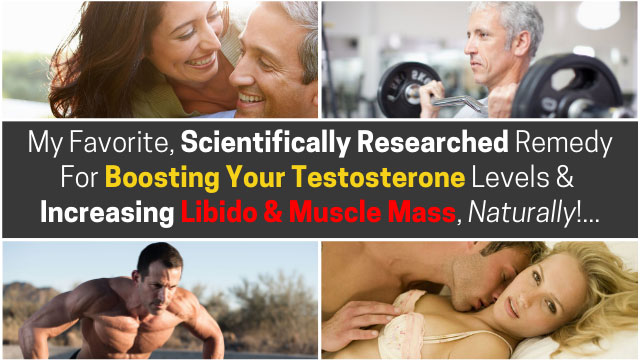About a year ago I did a super popular video about Zinc and how it improves your testosterone levels, libido, and so forth.
So then came all the comments and questions.
That led to another video about the Top 10 Benefits of Zinc.
Then the Best Type & Form of Zinc
And finally, the 3 Best Foods Highest in Zinc
So, I figured I had covered it all.
However, someone asked me a super important question about Zinc the other day in the comments section. He asked:
Dr. Sam – how do I know if I need to take zinc? If I’m deficient in it? What are the symptoms? What’s the biggest or first sign a person might be zinc deficient?
Well, this is a great question and it looks like I didn’t address it in the previous videos, so that’s what I’ll be quickly talking about today.
Deficiency Stats
First, let’s quickly go over some deficiency stats posted by the NIH (National Institute of Health).
As high as 50% of adults are deficient in zinc. This is really bad.
About 35%-45% have low levels, only 50% of the RDA’s recommendations.
And the people taking supplements, a shocking 25% of adults STILL had “inadequate zinc intake”
Mind you, these are not even OPTIMAL levels – these are the bare minimum to get by and survive!
How Do You Know If YOU Are Deficient
So based on the stats, let’s assume most people do NOT have optimal levels of zinc. And the stats show that the older you are, the more deficient you become, especially after the age of 50.
Doing blood tests typically isn’t very accurate and is obviously an inconvenience for most of us because of time and money.
So, all we can do is see what SYMPTOMS you may have, that can be potentially linked to zinc deficiency.
The problem is that Zinc is involved and required as a catalyst for approximately 100 enzymatic reactions.
For example…
- it plays a vital role in immune function
- protein synthesis … which is related to muscle growth, skin, hair and so forth.
- wound healing
- As well as important DNA synthesis, and cell division.
Zinc also supports normal growth and development during pregnancy, childhood, and adolescence.
It’s also required for a proper sense of taste and smell.
Lastly, daily intake of zinc is required to maintain a steady state because the body has no specialized zinc storage system… unlike fats, carbohydrates, and proteins, which your body CAN store.
Thus, zinc is linked to so many health issues that the deficiency can be hard to pinpoint.
Because of this, I’m going to list PRIMARY and then secondary symptoms because there is no ONE specific one that’s more important than any other.
Remember, the human body is super complex and there are like a million different things happening at once.
So, if anyone ever tells you there’s ONE specific reason or cause for some issue with the body – they are ignorant and misinformed. Don’t listen to them.
Primary Symptoms
- Lowered sex drive, especially for men
- Slow wound healing
- Hair loss … both men and women
- Decrease sense of smell & taste, which can lead to a loss of appetite
- Poor immune system… you get sick often, colds, etc.
- Feeling fatigued, tired, less alert
- White spots on your nails or even brittle, weak nails
Secondary Symptoms
- Depression
- Diarrhea
- Dry eyes and skin
If you have any of these, especially more than 2 or 3 of the primary ones, I highly recommend you consider taking additional zinc.
Even if you aren’t deficient in zinc, chances are you do NOT have OPTIMAL levels.
Balance Zinc With Copper
And if you’ve seen my previous videos, I stated that zinc should be balanced with copper.
I typically take the patented Zinmax® Zinc Picolinate at 20 mg daily + 3 mg of Copper. The ratio should be around 10:1
If I’m feeling sick, I double or even triple the dose.
The good news is that I’ve included both of these in AlphaViril at the correct dosages, which also includes other natural ingredients for boosting testosterone, balancing hormones, and dramatically increasing your libido and sexual performance.
Either way, make sure you add it to your daily supplement intake because Zinc + Copper has far too many health, fitness, and longevity benefits for you to ignore.
- https://www.ncbi.nlm.nih.gov/pubmed/8083574?dopt=Abstract
- http://search.nap.edu/nap-cgi/de.cgi?term=Dietary+Reference+Intakes+for+Vitamin+A%2C+Vitamin+K%2C+Arsenic%2C+Boron%2C+Chromium%2C+Copper%2C+Iodine%2C+Iron%2C+Manganese%2C+Molybdenum%2C+Nickel%2C+Silicon%2C+Vanadium%2C+and+Zinc.&x=13&y=10
- https://www.ncbi.nlm.nih.gov/pubmed/9481116?dopt=Abstract
- https://www.ncbi.nlm.nih.gov/pubmed/7749260?dopt=Abstract
- https://www.ncbi.nlm.nih.gov/pubmed/8835055?dopt=Abstract
- https://www.ncbi.nlm.nih.gov/pubmed/3868917?dopt=Abstract
- https://www.ncbi.nlm.nih.gov/pubmed/16632171?dopt=Abstract
- https://www.ncbi.nlm.nih.gov/pubmed/9010918?dopt=Abstract
- https://www.ncbi.nlm.nih.gov/pubmed/11115789?dopt=Abstract
- https://www.ncbi.nlm.nih.gov/pubmed/12421862?dopt=Abstract
- http://www.ers.usda.gov/publications/fanrr36/fanrr36.pdf




